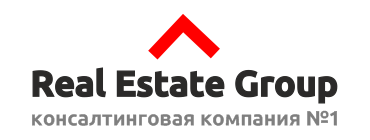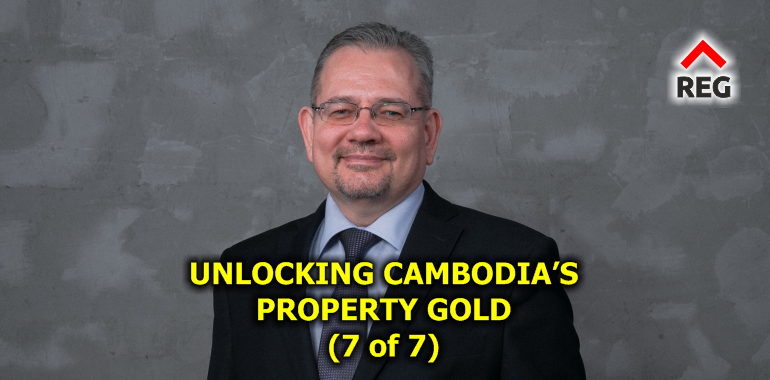YouTube
Podcasts
MAVE | Apple Podcasts | Spotify |Яндекс Музыка | VK | SoundStream | Deezer | Castbox | Overcast | Pocket Casts | Podcast Addict
Want to Buy Real Estate in Cambodia? Write a Request in WhatsApp and We Will Find the Best Options For You. Everyone Buys From Us!
Part 7: Unlocking Cambodia’s Real Estate Potential: A Guide for Foreign Buyers in 2024.
Introduction:
Discover the Kingdom of Cambodia: Your Gateway to Southeast Asian Real Estate.
As the sun rises over the ancient temples of Angkor Wat and the bustling streets of Phnom Penh, Cambodia beckons with promise. In 2024, this vibrant nation stands at the crossroads of history, offering foreign buyers an unparalleled opportunity to invest in its burgeoning real estate market.
Why Cambodia?
1. Economic Momentum: Cambodia’s economy has been on a steady upward trajectory, driven by tourism, manufacturing, and infrastructure development. As the country modernizes, so does its property landscape.
2. Strategic Location: Nestled between Thailand, Vietnam, and Laos, Cambodia is a gateway to Southeast Asia. Its proximity to major markets makes it an attractive investment hub.
3. Cultural Richness: From the mystical temples of Siem Reap to the pristine beaches of Sihanoukville, Cambodia’s diverse landscapes captivate the soul.
The best 5 cities to buy real estate in Cambodia according to Real Estate Group.
1. Phnom Penh: The capital city pulses with energy, offering high - rise condos, riverside living, and a thriving business district. Foreigners can own condos outright, making it an investor - friendly choice.
2. Siem Reap: Beyond Angkor Wat, Siem Reap boasts boutique hotels, lush villas, and a growing expat community. Invest here for a blend of history and modernity.
3. Sihanoukville: Coastal paradise meets urban development. Beachfront condos and resort - style living await savvy buyers.
4. Kampot: Known for its laid - back vibe and riverside charm, Kampot offers eco - friendly retreats and a slower pace of life.
5. Battambang: Cambodia’s second - largest city exudes authenticity. Explore French colonial architecture and consider heritage properties.
Navigating the Legal Landscape.
- Property Titles: Understand hard titles (for land) and strata titles (for condos). The Trustee Law allows foreign investors to hold land through trust arrangements.
- Taxes and Fees: Registration tax, property tax, and additional costs are part of the equation. Calculate wisely.
- Risk Mitigation: Due diligence, reputable developers, and legal advice minimize risks.
Insurance for Peace of Mind.
- Property Insurance: Shield your investment against fire, natural disasters, and theft.
- Title Insurance: Ensure clear ownership rights.
- Liability Insurance: Guard against accidents and legal liabilities.
Cambodia Awaits.
Whether you seek a riverside condo, a historic villa, or a beachfront escape, Cambodia invites you to write your real estate story. In 2024, the Kingdom’s doors are wide open, and the adventure begins.
Chapter 1: Real estate ownership for foreigners in Cambodia in 2024.
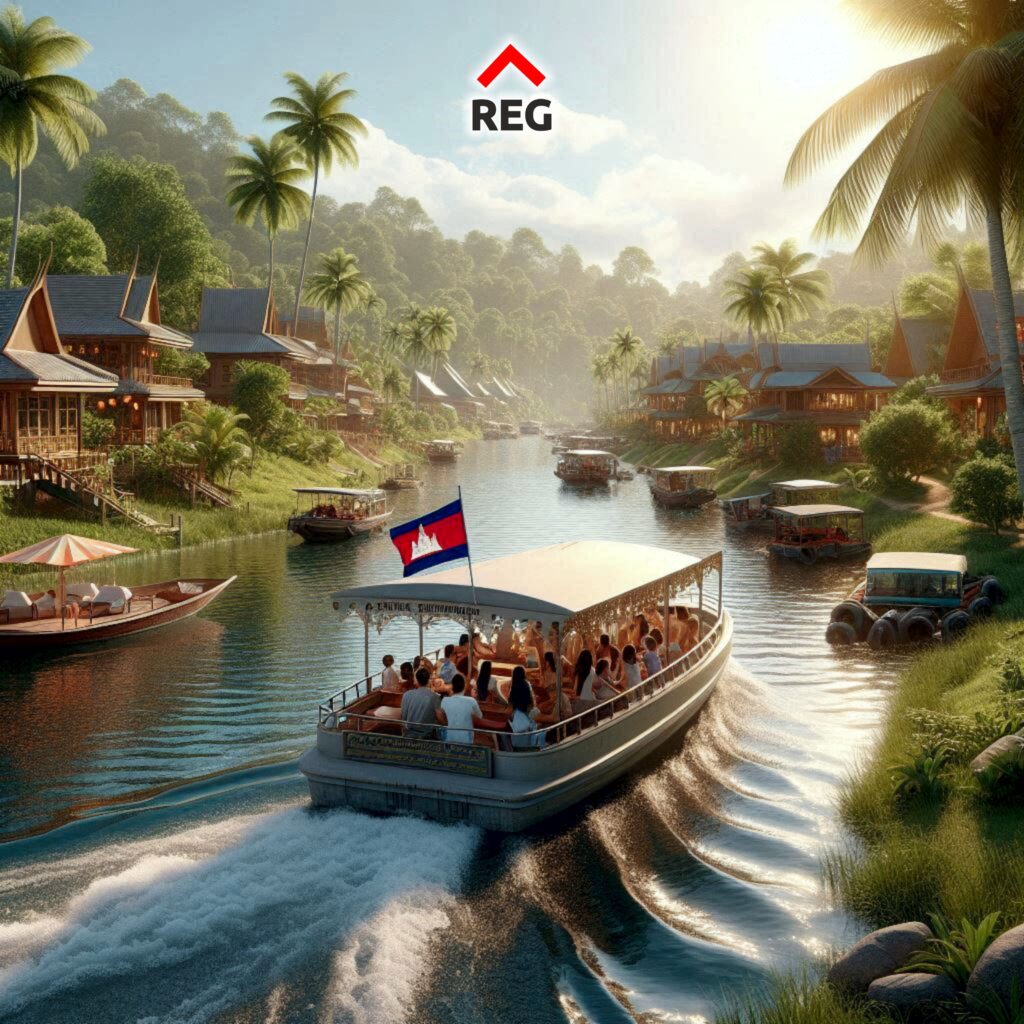
Real Estate Group offers an in-depth look into the details of real estate ownership for foreigners in Cambodia:
1. Strata Property Law in Cambodia (2010).
- The Strata Property Law, enacted in 2010, governs the ownership and management of strata - titled properties (such as condominiums and apartments).
- Key points:
- Condominium Ownership: Foreigners can own individual units within condominium buildings. These units are registered under their names, granting them full ownership rights.
- Common Areas: The law defines common areas (e.g., hallways, elevators, swimming pools) and outlines how they are managed collectively by unit owners.
- Condominium Management Committee: Each condominium has a management committee responsible for maintaining common areas and enforcing rules.
- Foreign Ownership Limit: No more than 70% of the total floor area in a condominium project can be owned by foreigners.
- Foreign Ownership Documentation: Foreign buyers receive a Certificate of Title (COT) for their individual units.
- Strata Title Registration: Developers must register the entire condominium project with the relevant authorities to issue strata titles.
2. Apartment Ownership as the Preferred Option.
- For foreign investors, apartment ownership (within condominiums) is indeed the most straightforward way to acquire property in Cambodia.
- Advantages:
- Legal Clarity: Strata titles provide clear legal ownership, making apartments a secure investment.
- Facilities and Amenities: Condominiums often offer amenities like gyms, security, and maintenance services.
- Ease of Transfer: Buying and selling apartments is relatively efficient due to standardized processes.
- Foreigner - Friendly: The Strata Property Law ensures foreign buyers’ rights are protected.
3. Land Ownership and the Trustee Law (2019).
- Historically, foreign ownership of land in Cambodia was complex due to restrictions. However, the Trustee Law (passed in 2019) changed the landscape:
- Trust Arrangements: Foreign investors can now use trust structures to hold land.
- Trustee: A trustee (often a local company or individual) holds the land on behalf of the foreign beneficiary.
- Beneficiary Rights: The beneficiary retains beneficial ownership rights, even though the legal title is in the trustee’s name.
- Risk Mitigation: Trusts provide a legal framework that minimizes risks associated with land ownership.
- Transparency: Trust arrangements must be registered, ensuring transparency.
In summary, Cambodia’s property market offers opportunities for foreign buyers through condominium ownership and innovative trust structures. As the country continues to develop, these legal frameworks provide confidence to investors seeking a foothold in the Kingdom of Cambodia.
Chapter 2: Title property rights in Cambodia in 2024.
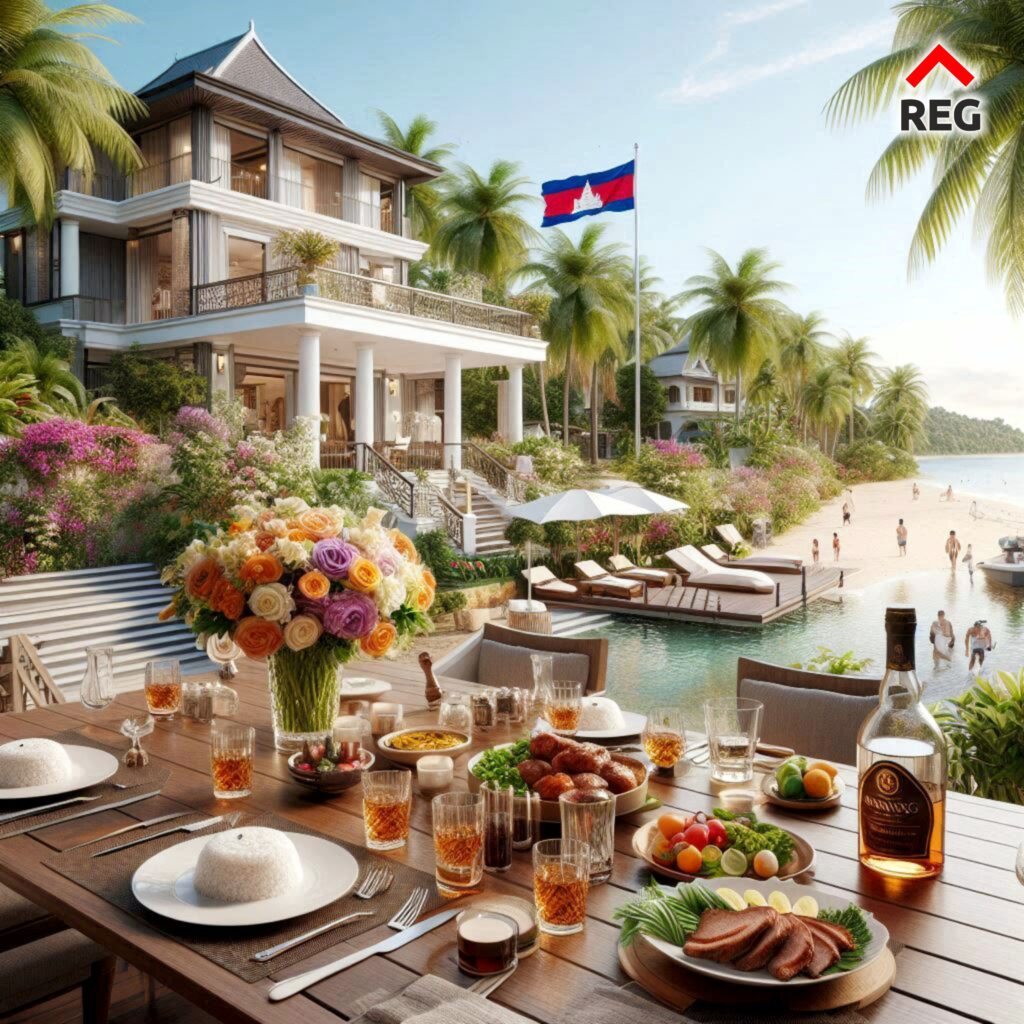
Real Estate Group offers a look at the different property titles available in Cambodia and how they make owning real estate easier:
1. Hard Titles:
- Definition: Hard titles, also known as “land titles,” provide direct ownership of land. They are issued by the Cambodian government and are considered the most secure form of property ownership.
- Features:
- Individual Ownership: Hard titles grant full ownership rights to the holder.
- Registered Land Parcel: Each hard title corresponds to a specific land parcel with a unique plot number.
- Physical Document: Hard titles are physical certificates issued by the Land Management Ministry.
- Land Transfer: Buyers can easily transfer hard titles to their names.
- Common for Land: Used primarily for land (not condominiums or apartments).
2. LMAP Titles (Land Management and Administration Project):
- Definition: LMAP titles are part of a land registration initiative aimed at formalizing land ownership.
- Features:
- Systematic Land Registration: LMAP aims to register land systematically across Cambodia.
- Security and Clarity: LMAP titles enhance security and provide clarity on land boundaries.
- Digital Database: Information is stored in a digital database accessible to relevant authorities.
- Conversion from Soft Titles: Some soft title holders can convert to LMAP titles.
- Common for Rural Areas: LMAP focuses on rural land.
3. Strata Title / Co - ownership:
- Definition: Strata titles apply specifically to condominiums and apartment buildings.
- Features:
- Condominium Ownership: Foreigners can own individual units within condominiums.
- Common Areas: Strata titles define ownership of individual units and shared common areas (e.g., corridors, elevators).
- Legal Framework: Governed by the Strata Property Law.
- Certificate of Title (COT): Buyers receive a COT for their unit.
- Foreigner - Friendly: Ideal for foreign investors seeking urban properties.
4. Soft Titles:
- Definition: Soft titles are informal land documents issued by local authorities.
- Features:
- Informal Ownership: Soft titles lack the legal weight of hard titles.
- Common in Informal Settlements: Often used in rural or informal settlements.
- Boundary Markers: Soft titles indicate land boundaries but may not be precise.
- Riskier: Less secure than hard titles due to potential disputes.
- Conversion to LMAP or Hard Titles: Efforts are ongoing to convert soft titles to more secure forms.
Remember that each title type has its advantages and considerations. For foreign buyers, strata titles (for condos) and LMAP titles (for land) offer clear ownership pathways. As Cambodia’s real estate market grows, understanding these titles is crucial for informed investment decisions.
Chapter 3: Cambodia's property taxes and other related levies in 2024.
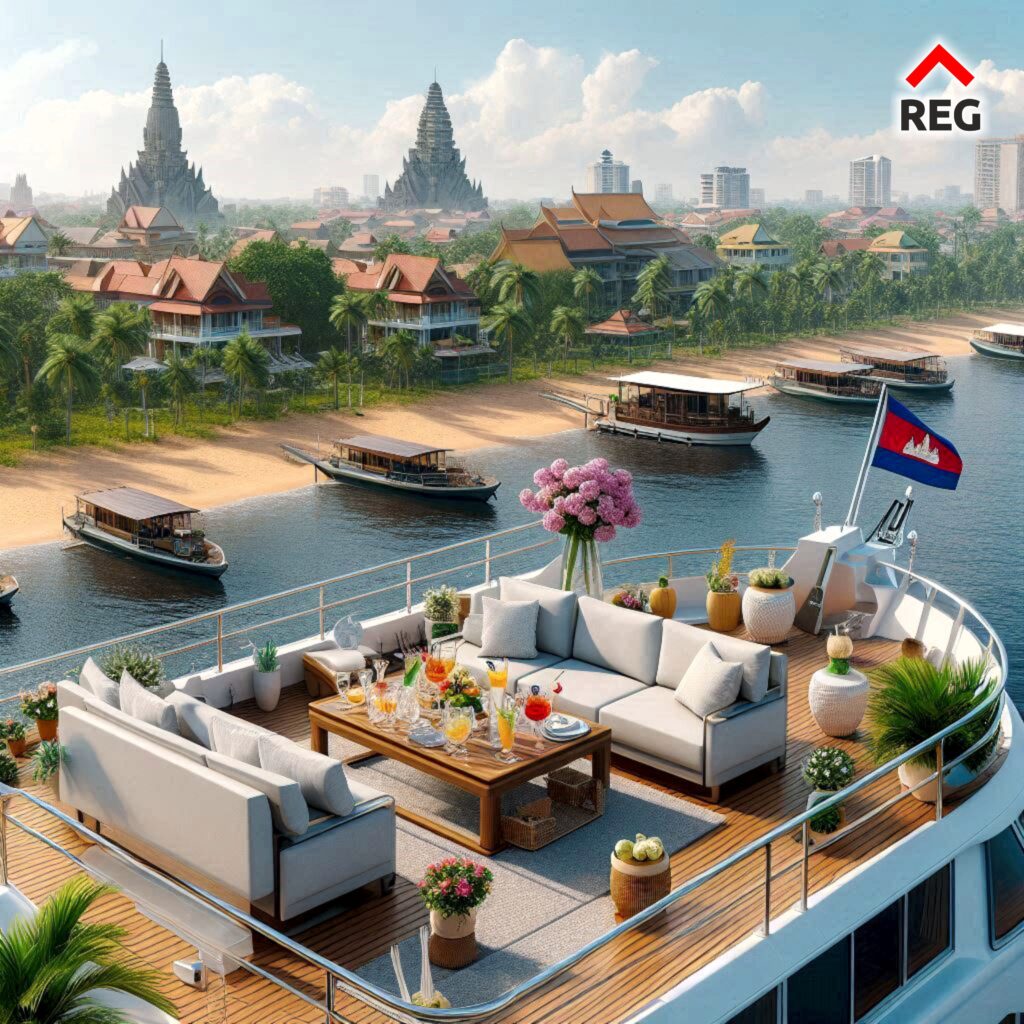
Real Estate Group looks at property taxes and related fees for foreign buyers in Cambodia:
1. Registration Tax:
- Applicability: Paid upon property transfer (buying or selling).
- Rate: Typically 4% of the property’s value.
- Example: For a $100,000 apartment, the registration tax would be $4,000.
2. Property Tax on Rental Properties:
- Applicability: Applies to property owners who rent out their units.
- Rate: Usually 10% of the annual rental income.
- Example: If your apartment generates $10,000 in annual rent, the property tax would be $1,000.
3. Tax on Undeveloped Land:
- Applicability: Relevant for landowners who don’t develop their land.
- Rate: Varies but typically around 2% of the land’s assessed value.
- Example: If you own undeveloped land valued at $50,000, the tax would be approximately $1,000.
4. Exemption for Low - Value Properties:
- Properties valued below $25,000 are exempt from property taxation.
5. Method of Calculation:
- Property tax is determined based on the property’s assessed value (not the purchase price).
- The tax rate is applied to the assessed value.
- Example for a $100,000 apartment:
- Assessed value (based on market value): $100,000.
- Property tax rate (e.g., 0.1%): 0.001
- Property tax = Assessed value × Tax rate = $100,000 × 0.001 = $100
6. Additional Costs and Fees:
- Transfer Fees: Paid to the Land Management Ministry during property transfer.
- Notary Fees: For legal documentation.
- Stamp Duty: Applied to certain documents (e.g., contracts).
- Agent Fees: If you use a real estate agent.
7. Payment of Property Taxes:
- Property taxes are typically paid annually.
- The taxpayer (owner) is responsible for payment.
8. Real Estate Management Fees:
- These fees cover property management services (maintenance, security, etc.).
- Calculation:
- Usually a percentage of the property’s rental income (e.g., 5%).
- Example for a $100,000 apartment:
- Annual rental income: $10,000.
- Management fee (5%): $500.
Before buying a property, don't forget to consult us on WhatsApp as regulations may change. Cambodia’s real estate market offers opportunities, but understanding costs and obligations is essential for successful investment!
Chapter 4. What risks exist for foreign buyers of real estate in Cambodia in 2024 and how to minimize them.
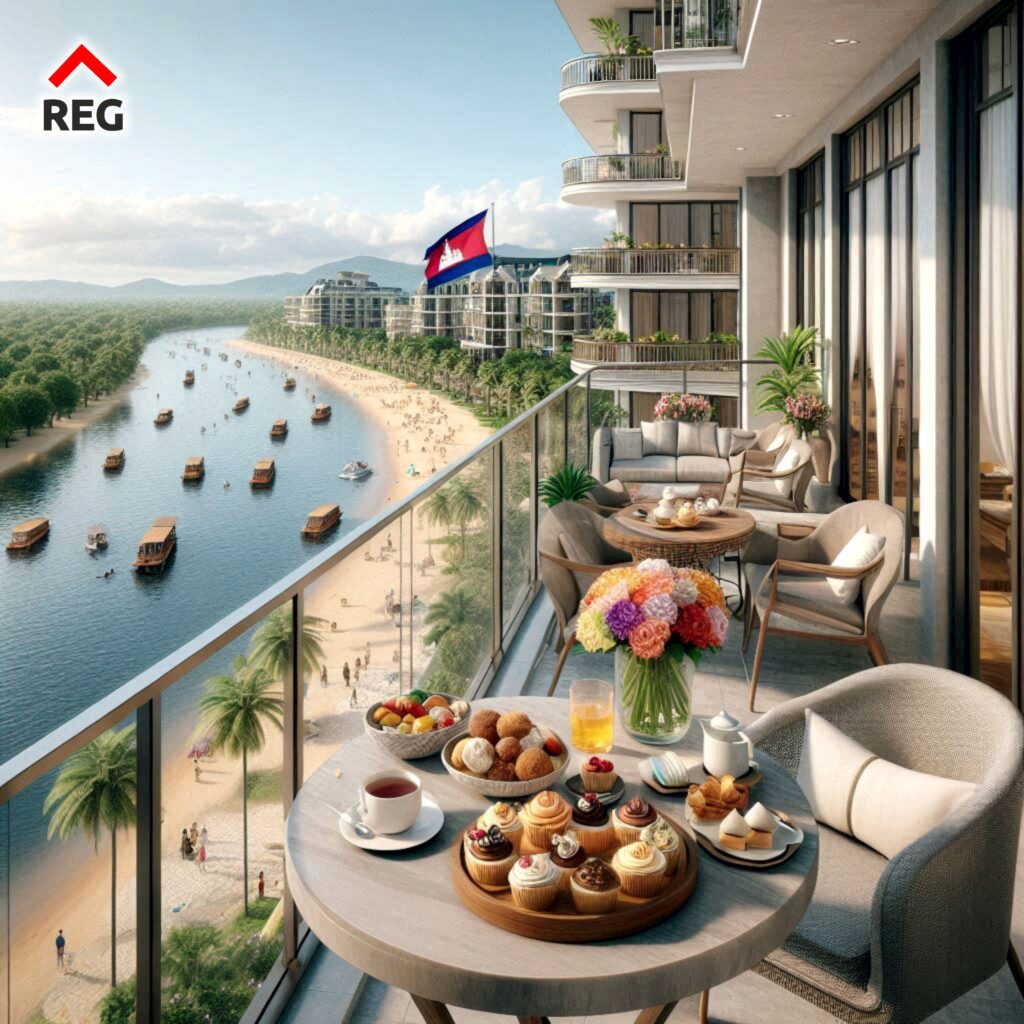
Real Estate Group offers a look at the risks associated with foreign real estate investment in Cambodia and strategies to mitigate them:
1. Land Disputes and Ownership Uncertainty:
- Risk: Cambodia has a history of land disputes, unclear titles, and overlapping claims.
- Mitigation:
- Due Diligence: Conduct thorough research on the property’s history, land title, and any potential disputes.
- Legal Assistance: Engage a reputable local lawyer or real estate expert to verify ownership and resolve any issues.
- Choose Secure Titles: Opt for hard titles or LMAP titles, which offer clearer ownership rights.
2. Market Volatility and Speculation:
- Risk: Rapid market growth can lead to speculation, price bubbles, and sudden corrections.
- Mitigation:
- Long - Term Perspective: Invest with a long - term view rather than speculating for quick gains.
- Diversify: Spread investments across different property types and locations.
- Monitor Market Trends: Stay informed about market dynamics and adjust your strategy accordingly.
3. Currency Fluctuations:
- Risk: Exchange rate fluctuations can impact the value of your investment.
- Mitigation:
- Hedging: Consider hedging currency risk through financial instruments.
- Stable Currencies: Invest in stable currencies (e.g., USD) if possible.
- Local Banking: Use local banks for transactions to minimize exchange costs.
4. Infrastructure and Development Risks:
- Risk: Infrastructure gaps (roads, utilities) can affect property value and rental income.
- Mitigation:
- Location Research: Choose areas with planned infrastructure development.
- Invest in Growing Cities: Focus on cities experiencing growth and government investment.
5. Legal and Regulatory Changes:
- Risk: Laws and regulations can change unexpectedly.
- Mitigation:
- Stay Updated: Regularly monitor legal updates and seek professional advice.
- Compliance: Ensure compliance with tax laws, property registration, and other requirements.
6. Developer Reputation and Project Risks:
- Risk: Some developers may face financial difficulties or fail to complete projects.
- Mitigation:
- Research Developers: Investigate developers’ track records and financial stability.
- Off-Plan Risks: Be cautious with off - plan purchases; consider completed projects.
7. Liquidity Challenges:
- Risk: Real estate is less liquid than other investments.
- Mitigation:
- Emergency Fund: Maintain liquidity elsewhere for unforeseen expenses.
- Exit Strategy: Plan an exit strategy in case you need to sell quickly.
8. Environmental and Natural Disaster Risks:
- Risk: Cambodia is prone to flooding, earthquakes, and other natural disasters.
- Mitigation:
- Location Assessment: Choose areas with lower risk.
- Insurance: Consider property insurance to cover damage.
Remember that thorough research, professional advice, and a cautious approach are essential. Cambodia’s real estate market offers opportunities, but informed decisions are key to successful investment.
Chapter 5. Insurance in the purchase of real estate in Cambodia by foreign buyers in 2024.
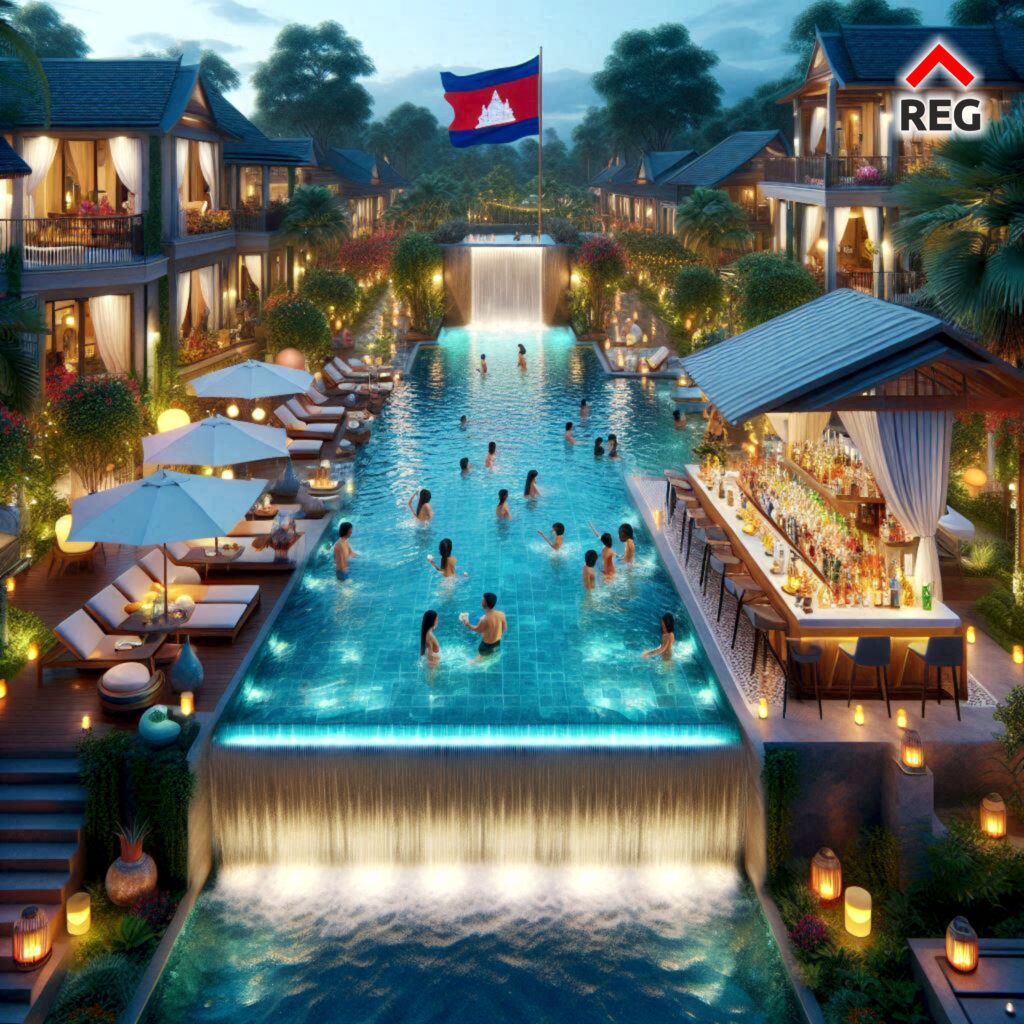
Real Estate Group offers insight into the insurance options and risks associated with investing in Cambodian real estate in 2024:
Insurance Options for Real Estate Buyers:
1. Property Insurance:
- Purpose: Protects your property against damage or loss due to fire, natural disasters, theft, or vandalism.
- Coverage: Typically includes the building structure, fixtures, and sometimes contents (furniture, appliances).
- Benefits: Provides peace of mind and financial security in case of unexpected events.
2. Title Insurance:
- Purpose: Ensures clear ownership by protecting against defects in the property title (e.g., undisclosed liens, disputes).
- Coverage: Pays legal fees to defend your title and compensates for financial losses due to title issues.
- Benefits: Essential for foreign buyers to verify ownership rights.
3. Liability Insurance:
- Purpose: Covers legal liabilities arising from accidents or injuries on your property.
- Coverage: Includes medical expenses, legal fees, and compensation to third parties.
- Benefits: Guards against potential lawsuits and financial losses.
Risks for Foreign Buyers in Cambodia:
1. Market Volatility:
- Risk: Cambodia’s real estate market can be volatile due to oversupply, speculation, and global economic shifts.
- Mitigation: Conduct thorough research, invest for the long term, and diversify your portfolio.
2. Ownership Uncertainty:
- Risk: Land disputes and unclear titles pose challenges.
- Mitigation: Opt for secure titles (hard titles or LMAP titles) and seek legal advice.
3. Currency Fluctuations:
- Risk: Exchange rate changes affect property value.
- Mitigation: Consider stable currencies and local banking for transactions.
4. Infrastructure and Development Risks:
- Risk: Inadequate infrastructure can impact property value.
- Mitigation: Choose areas with planned development.
5. Legal and Regulatory Changes:
- Risk: Laws can change unexpectedly.
- Mitigation: Stay informed and comply with regulations.
6. Liquidity Challenges:
- Risk: Real estate is less liquid.
- Mitigation: Maintain liquidity elsewhere and plan an exit strategy.
Remember, while Cambodia offers opportunities, informed decisions are crucial. Consult us on WhatsApp and consider insurance to secure your investment.
Conclusion:
Want to Buy Real Estate in Cambodia? Write a Request in WhatsApp and We Will Find the Best Options For You. Everyone Buys From Us!
Unlock Your Cambodian Dream: Luxury Living in 2024.
As the sun - kissed Mekong River winds through ancient temples and vibrant markets, Cambodia whispers its secrets to those who listen. In the heart of Southeast Asia, a tapestry of history, culture, and opportunity awaits. Let’s conclude our journey through the Kingdom’s enchanting cities and unveil why luxury real estate is your passport to an extraordinary life.
1. Phnom Penh: Where Ambition Meets Elegance.
- The Pulse of Progress: Phnom Penh, Cambodia’s capital, thrives with ambition. Skyscrapers pierce the sky, and riverside promenades buzz with life. Owning a luxury condo here means waking up to panoramic views of the Tonle Sap River, sipping coffee on your private balcony, and immersing yourself in a dynamic urban tapestry.
2. Siem Reap: Beyond Temples, Into Tranquility.
- Angkor’s Legacy: Siem Reap isn’t just about Angkor Wat; it’s a canvas of boutique villas, lush gardens, and serene lakes. Imagine strolling through ancient ruins by day and returning to your private oasis by night. Luxury living here means embracing history while cocooned in comfort.
3. Sihanoukville: Coastal Bliss and Urban Chic.
- Beachfront Bliss: Sihanoukville’s golden beaches beckon. Invest in a luxury beachfront villa, where turquoise waters meet your doorstep. Wake up to the sound of waves, sip cocktails at sunset, and let the ocean breeze weave its magic. This is life unfiltered, where every day feels like a vacation.
4. Kampot: Riverside Romance.
- Slow Living, High Style: Kampot’s riverside charm invites you to unwind. Picture eco-friendly retreats, colonial - era architecture, and evenings spent watching fireflies dance on the water. Luxury homes here blend seamlessly with nature, offering a sanctuary for your soul.
5. Battambang: Heritage and Hidden Gems.
- French Flair: Battambang whispers secrets of French colonial elegance. Invest in a heritage property, where wrought-iron balconies frame your view of bustling markets. Sip wine on your terrace, and let the past and present intertwine.
Why Luxury Real Estate?
1. Investment: Cambodia’s property market is on the rise. Luxury properties appreciate, offering both lifestyle and financial gains.
2. Quality of Life: Imagine waking up to sunrise over ancient temples or sunset on a private beach. Luxury homes elevate your daily experience.
3. Exclusivity: These cities hold secrets - boutique developments, hidden gardens, and personalized service. Luxury living is an invitation to the select few.
Seize the Moment: In 2024, Cambodia’s real estate canvas awaits your brushstroke. Whether it’s a penthouse with skyline views or a historic villa, claim your piece of paradise.
Contact with Experts: Contact Real Estate Group on WhatsApp and we will guide you through the entire process of choosing and buying real estate in the Kingdom of Cambodia.
Live the Dream: Luxury isn’t just marble floors and infinity pools; it’s the promise of a life well - lived. Cambodia invites you to write your chapter.
Embrace Luxury. Embrace Cambodia. Your adventure begins now!
